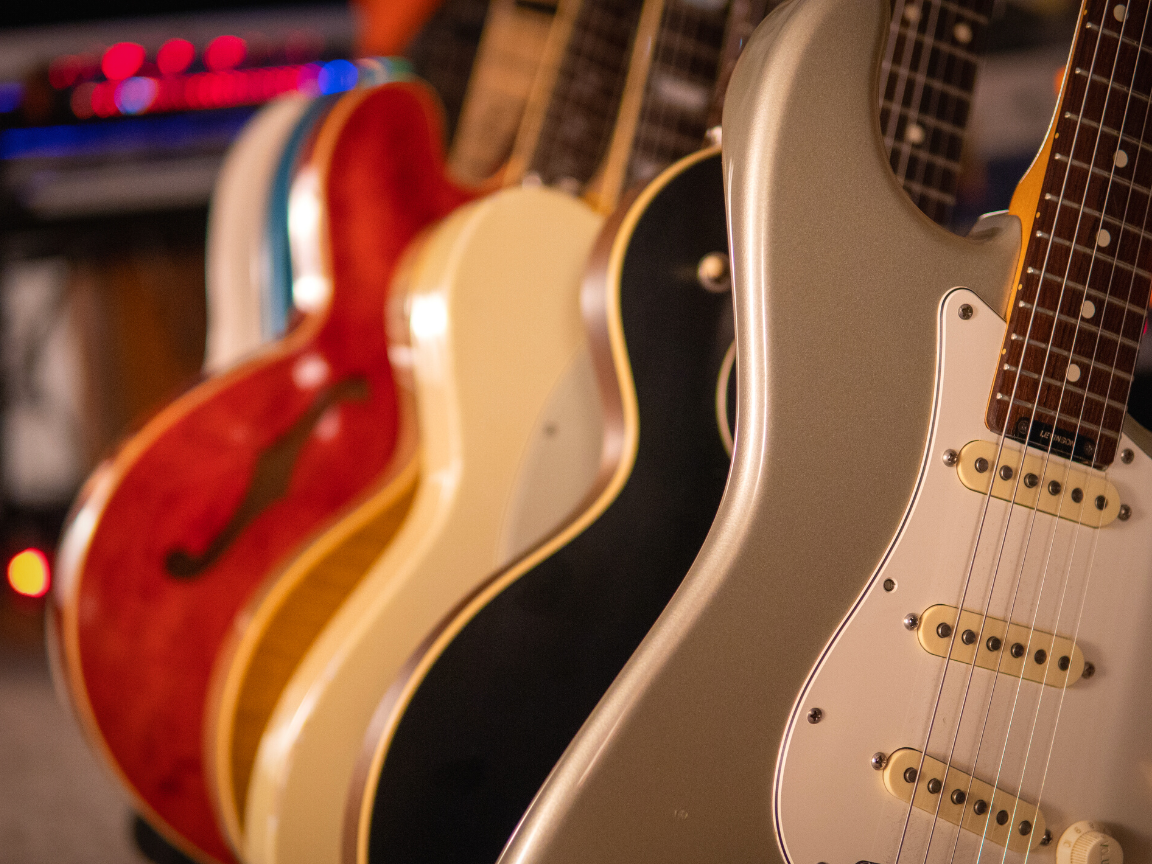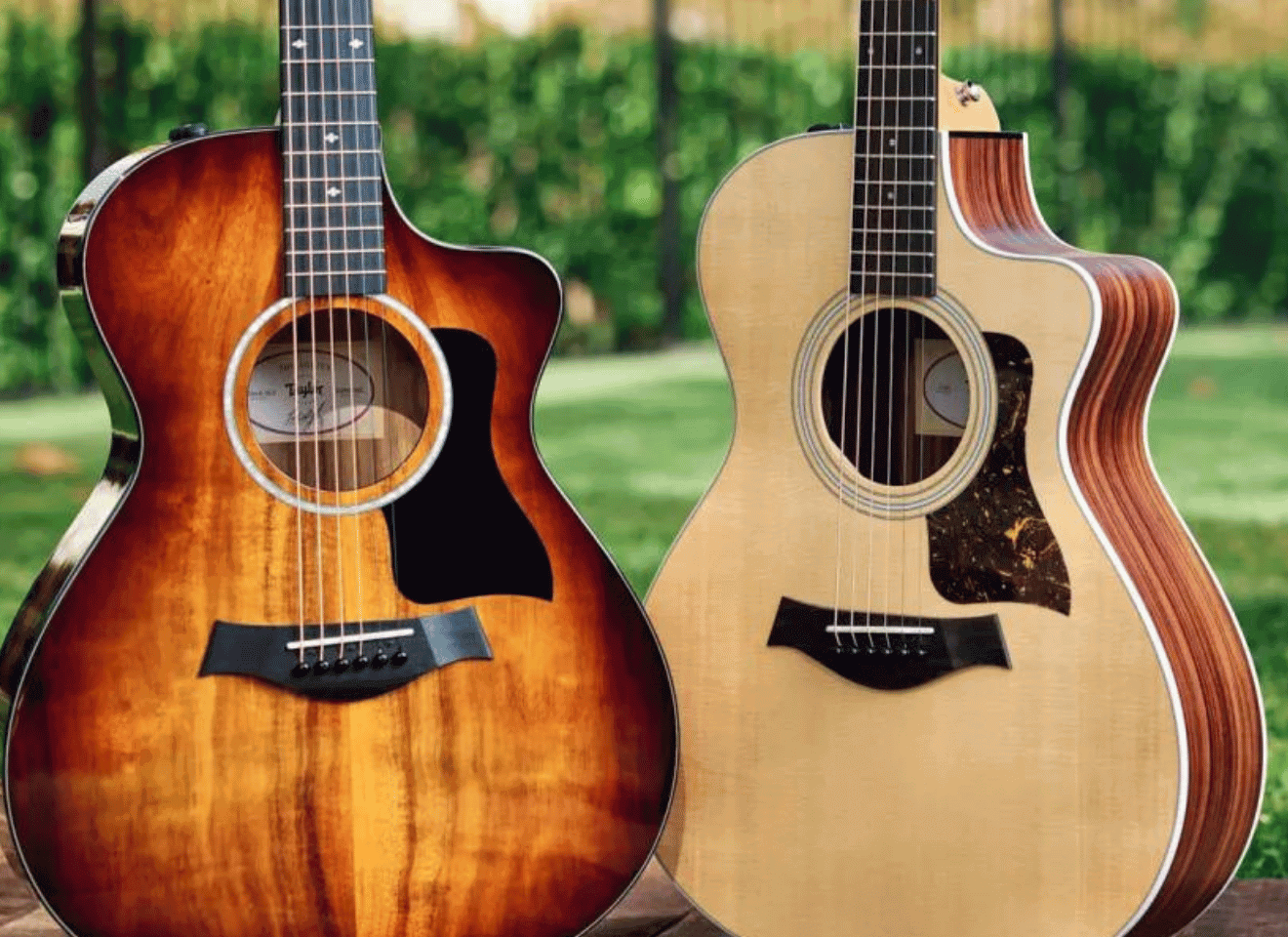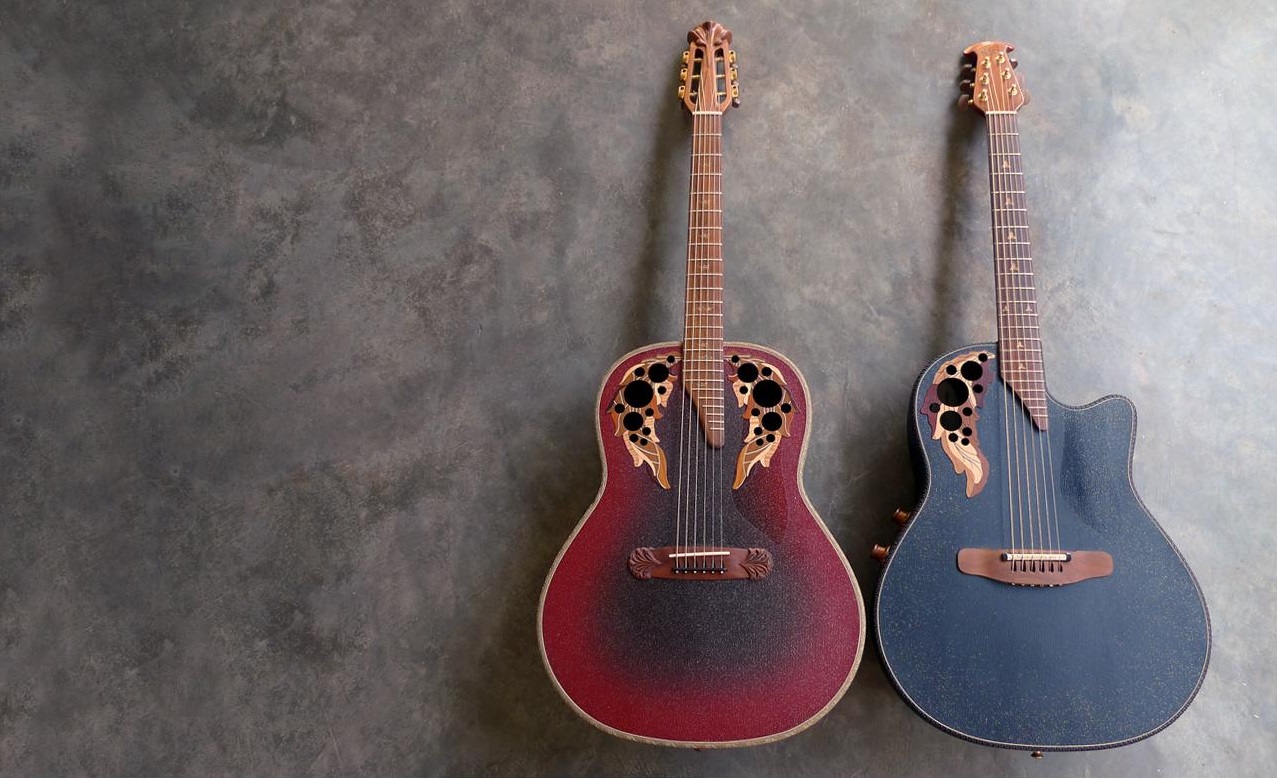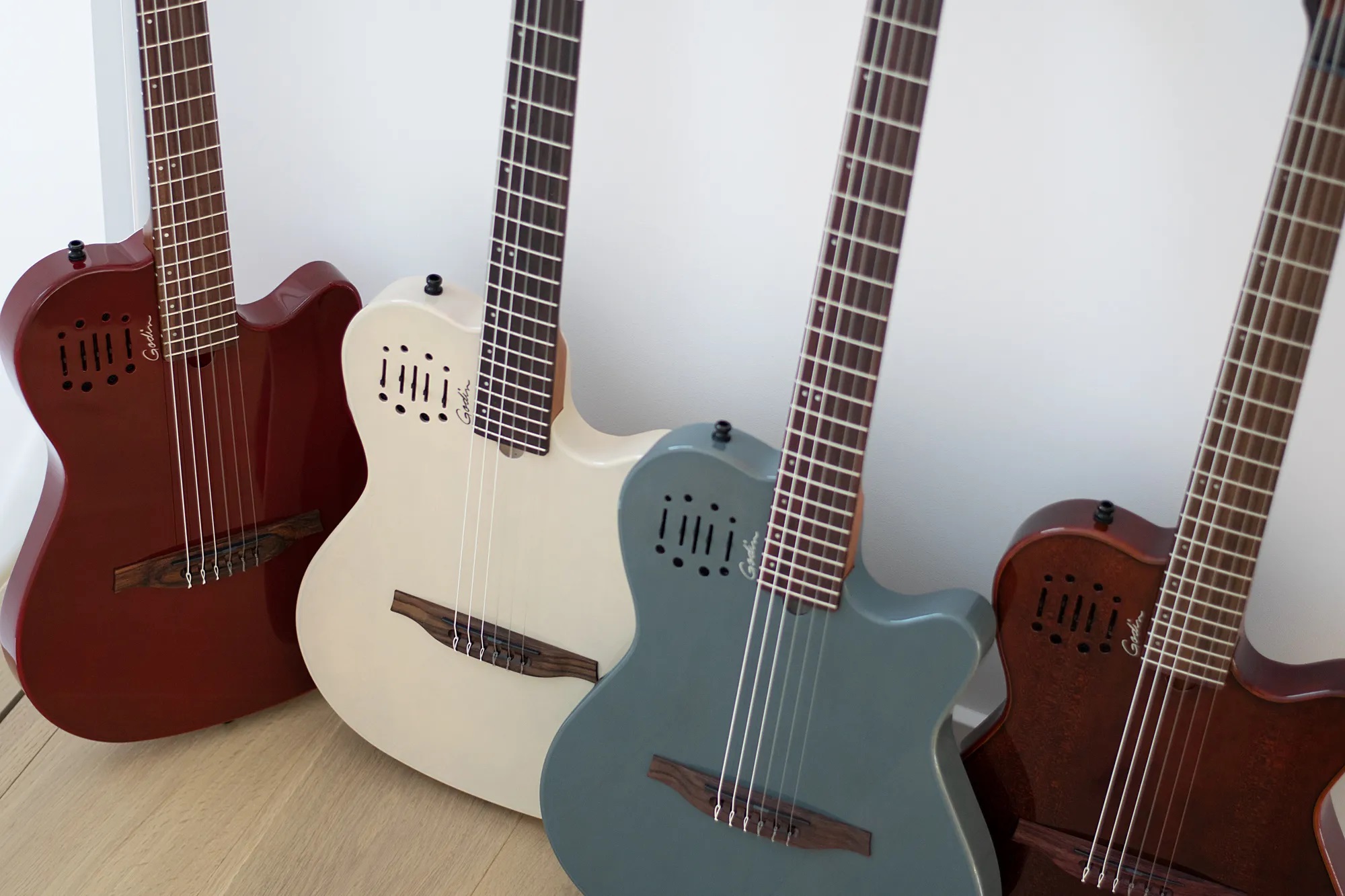Music has always been an important part of Japanese culture, and the country has a long history of instrument making, especially guitars.
In recent years, a new generation of Japanese guitar brands has begun to emerge, catering to the needs of both domestic and international markets.
Today, Japan is home to a number of world-renowned guitar brands, many of which have been crafting high-quality instruments for decades.
In this blog post, we will be taking a look at some of the best Japanese guitar brands, both in the past, and present.
Table of Contents
1. Ibanez

Ibanez is one of the most popular examples of this list by far, since it has achieved international success after so many years. Just like Takamine, it’s said to began with classical guitars.
The brand took the last name of the spanish luthier Salvador Ibanez as inspiration, at first using the “Ibanez Salvador” brand name and later just simply using “Ibanez.”
While Ibanez began as a small company, it quickly expanded after it began manufacturing Fender and Gibson knockoffs in the 1970s.
Hoshino Gakki, who just distributed sheet music at the time, founded Ibanez in 1908.
Notably, it produces a number of excellent-sounding semi-hollow guitars, as well as an impressively affordable acoustic guitar catalog for beginning players.
2. Yamaha

Yamaha guitars have long been considered staples in school bands and music education programs due to their incredible value.
Torakusu Yamaha, the founder of the Japanese guitar brand, led the effort to manufacture Western musical instruments such as guitars in Japan.
Nippon Gakki, which means and translates to “Japanese musical instrument,” was Yamaha’s original name at first.
To commemorate the company’s 100th anniversary, the name Nippon Gakki was changed to Yamaha in 1987.
Yamaha is an underappreciated guitar brand.
The Japanese guitar manufacturer sells high-quality instruments at surprisingly low prices.
The Yamaha A5M- ARE from the A-Series is one of the best examples.
This is a solid Sitka spruce and solid rosewood acoustic-electric guitar.
Yamaha’s Acoustic Resonance Enhancement system has been applied to the top (ARE).
Yamaha’s inventiveness distinguishes it from other Japanese guitar manufacturers.
The ARE system, like the SRT2 guitar electronics system, exemplifies the brand’s innovative spirit.
A piezo pickup is combined with microphone modeling technology in this system.
Depending on your performance requirements, you can blend signals to customize your sound.
Check out this video demo to see how this pickup works.
3. Takamine

Takamine began in 1959 as a family-run guitar shop and has since grown to become a world-renowned guitar manufacturer.
Like many other Japanese guitar manufacturers, it began by primarily producing classical guitars.
The Palathetic undersaddle pickup was created by the company in 1978.
The Palathetic pickup is now one of the most advanced undersaddle pickups on the market.
It has six distinct piezo elements, each of which penetrates the soundboard.
That is, the pickup captures both soundboard resonance and string vibration, resulting in a fuller, more faithful amplified sound.
Takamine’s innovative spirit also led to the creation of the CTP-1 Cool Tube, the first onboard tube preamp for acoustic guitars.
The tube preamp provides a balance of warmth and grit in your sound and really allows you to shape it as well.
While Takamine acoustic guitars are revered for their modern electronics and precise craftsmanship, they remain within reach price-wise for the majority of working musicians.
4. ESP Guitars

You might be surprised to learn that Electric Sound Products, or ESP, is a Japanese guitar manufacturer. Hisatake Shibuya founded the company in 1975.
However, unlike the majority of the guitar brands on this list, it began as a manufacturer of guitar components and replacement parts.
Although it had a custom shop, it did not initially mass-produce guitars in Japan.
In the 1970s, ESP was producing some of the highest-quality guitars on the market.
However, because these guitars were so similar to Gibson and Fender models, they could only be sold in Japan.
In the 1980s, the ESP brand relocated to the United States, and after “ghost building” for Kramer, it began producing its own line of manufactured guitars.
ESP’s metal-friendly designs quickly gained popularity.
Since Hisatake Shibuya founded ESP in 1975, it has progressed from simply producing quality copies to becoming one of the world’s leading guitar manufacturers with a plethora of great original designs.
5. Fender Japan

Fender Japan stands out because it is the only guitar brand on the list that didn’t actually originate in Japan.
You may have heard that in the 1970s, other Japanese brands made quality copies of Fender instruments, and when I say “quality”, I really mean it.
Those copies gained a reputation for being of higher quality than genuine Fender guitars.
Fender began manufacturing in Japan to put pressure on these brands to stop producing knockoffs (and to protect Fender’s reputation).
Fender, on the other hand, partnered with the Japanese brand Fujigen Gakki to produce Fender Japan guitars.
Japanese-made Fenders were surprisingly as good as those made in the United States, and made-in-Japan (MIJ) Fenders are still highly regarded.
Beginning in 1994, all guitars that were made in Japan were stamped with CIJ, which stands for “crafted in Japan” rather than MIJ, “made in Japan”.
Fender continues to produce high-quality instruments today, and the company occasionally creates interesting Japan-exclusive designs.
6. Teisco
Teisco is one of the list’s younger guitar brands, having been founded in 1948 and acquired by 1967.
It was also a more diverse manufacturer than many of the other brands on the list.
Teisco also produced acoustic guitars, microphones, drum kits, and amplifiers in addition to electric guitars.
Earlier Teisco guitars resembled Gibson models, but many later models had offset, dual-cutaway bodies reminiscent of a Jazzmaster.
They frequently had unusual characteristics.
Teisco guitars are an excellent choice for guitarists looking for vintage treasures.
Teisco models can sell for a few hundred dollars on used musical instrument platforms, while pristine or rare models can sell for $1,000 or more.
Surprisingly, the brand has recently reappeared, but this time it’s not making guitars, but rather effects pedals.
7. Greco
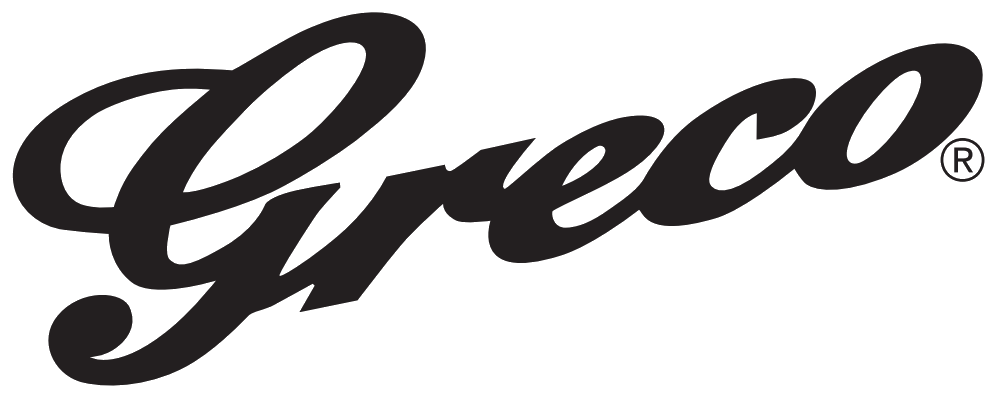
Greco Guitars is one of the list’s older Japanese manufacturers.
The company was established in 1960 and is still in operation today.
Greco began by designing its own guitars, but the Beatles and Led Zeppelin inspired the company to begin producing copies.
Greco began making copies of The Beatles’ Paul McCartney’s Hofner violin bass and a lot of Telecaster-style copy after the Beatles toured Japan.
The majority of these guitar include a humbucker bridge pickup, but even then, they also come with a single-coil neck pickup.
Greco bass guitars typically have two J-style pickups, and all-electric guitar models come in colors similar to those found in a Fender catalog.
However, given their high build quality, they are reasonably priced.
8. Tokai
Tokai, founded in 1947, is still in operation today.
It was (and continues to be) one of the better Japanese brands.
Martin even trusted its craftsmanship — Tokai was in charge of producing the Sigma by Martin line, which was essentially Martin’s budget brand.
In 2007, the Sigma line was discontinued.
Tokai now manufactures acoustic, electric, and bass guitars.
The company still sells some Fender-inspired guitars, but it also has its own striking collection of Hummingbird electric guitars.
It also produces the Chromaharp, a small lap harp that allows the user to strum strings by pressing a button.
9. Fernandes Guitars

While Takamine is known for its acoustic guitars, Fernandes Guitars (also known as Burnys Guitars) is known for its eclectic and often eye-catching electric guitar designs.
In 1969, the company was founded in Osaka, Japan.
Fernandes Guitars, along with Matsumoku and Fujigen Gakk guitar brands, is also a major Japanese guitar manufacturer.
Many of Fernandes’ early guitars were knockoffs of popular Fender models, particularly the Telecaster and Stratocaster.
The “Burny” logo on the headstock of Fernandes guitars was usually a Gibson knockoff.
The name “Burny” some people say was actually a misspelling of “Bunny,” but Fernandes refused to change it after the guitar manufacturer pointed it out.
Although the company began in 1969 in Osaka, Japan, essentially copying electric guitars from well-known guitar brands.
Fernandes contributed an important feature to the history of the electric guitar: the sustainer.
This system generates an electromagnetic field that vibrates the strings of an electric guitar to provide infinite sustain.
The Fernandes sustainer is still available for purchase.
10. Fujigen
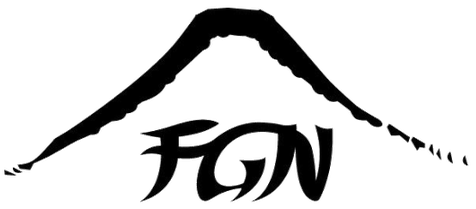
Fujigen Guitars (abbreviated FGN Guitars and originally known as Fujigen Gakki) is a high-quality Japanese guitar manufacturer.
It also produces a variety of instruments, such as bass guitars, solid-body electric guitars, and hollow-body guitars.
In addition to selling guitars under its own FGN brand, Fujigen is a subcontractor for a few Ibanez instruments also, even so some non-musical products.
If you take a notice, most vintage Fujigen Gakki guitars can be considered copies of Gibson and Fender instruments, as is the case with most Japanese manufacturers.
These are typically high-quality manufactured guitars that can be found on vintage guitar specialty sites.
Fujigen now offers high-quality guitars at a variety of price points.
They accept orders for completely custom electric guitars, as well as a selection of fairly high-end guitars.
11. Matsumoku
The history of Matsumoku is fascinating, the company began as a woodworking company in 1951 and later started creating all sorts of furniture for the Singer Corporation, a sewing machine manufacturer.
It later diversified into the manufacture of acoustic guitars and violins.
The reasons are mostly unkown, but Matsumoku was one of the first manufacturers to use automation in the production of guitars.
Because the company used computer numerical controlled machines for some of the construction work, it was able to produce more guitars faster while saving money on labor.
Because of Matsumoku’s efficient factory setup, the company contracted with several brands to manufacture guitars and components.
The company collaborated with Washburn, Vox, Greco, Aria, and other brands, as well as selling its own guitars under the Westone brand.
In 1987, it had to be closed down since Singer Corporation was nearly bankrupt and they couldn’t afford to buy itself out of it.
12. Atelier Z

Atelier Z is a relatively new, was founded in 1989, and is a manufacturer of high-end guitars in Japan.
This isn’t one of the many Japanese guitar makers who produced Gibson and Fender knockoffs during the “lawsuit era”.
Atelier Z has a large selection of basses, many of which have unusual design elements.
Some models, for example, have an ash top and an alder back chamber, which provides excellent tonal balance while remaining lightweight.
Many have J-style pickups, while others have two humbuckers or a j-pickup/humbucker combo.
The company also produces a few bass preamps for players who want more tonal control.
Though Atelier Z is best known for its basses, it also sells a number of high-quality guitars.
Its semi-hollow electric guitar line includes models with Bigsby tremolos, ebony fingerboards, and Grover tuners.
Players from other countries are starting to buy and perform with these guitars, even though Atelier Z instruments are most popular in Japan.
13. Suzuki Guitars

Kiso Suzuki, was the name of a Japanese guitar manufacturer in which these gutiars were named after.
In 1887, the company began producing violins, lutes, and other stringed instruments. It later expanded into guitar manufacturing.
Kiso Suzuki (then known as the Kiso Suzuki Violin Company) was one of many manufacturers producing knock-offs of popular American guitars in the 1970s.
Kiso Suzuki primarily produced acoustic guitars, many of which were Martin guitar knockoffs.
These guitars were most of the time built using laminated backs and sides, but still, their sound quality was exceptional.
Kiso Suzuki adopted Martin’s scripted headstock logo, and so the copies were designed to be VERY accurate visual replicas.
14. Caparison

Caparison is a contemporary Japanese guitar company founded in 1997.
They’re known for their one-of-a-kind, sophisticated, and innovative designs that combine elements of newer and older guitars.
As a much younger brand than the others, it’s impressive how quickly the Caparison brand caught on by the mid-2000s and boasted a roster of well-known artists.
The Dellinger, Horus, Appleton, and TAT are among their most popular models, and they’ve been used by guitarists such as Michael Romeo, Andy LaRoque, Olof Morck, and Adam D., Joel Stroetzel, and Mattias Eklundh.
Caparison makes beautiful instruments, but they are typically more expensive than these other brands, which reflects their fine craftsmanship.
The part of me that wishes they had more affordable guitars understand and respects their reputation as a hand-made Japanese guitar brand with extremely high standards.
15. Morris

Morris Guitars was founded in 1967 and is a Japanese manufacturer that sells instruments for every level of player, from entry-level acoustic guitars to high-end, handcrafted instruments for professionals.
The company has an advantage when it comes to building guitars, according to the brand, because it starts from the beginning with high-quality tonewoods.
Many of the tonewoods used are familiar to Americans, but Morris also employs Yezo spruce, a Japanese spruce tree with tonal properties similar to European spruce.
Morris Guitars now only makes acoustic instruments, and its high-end acoustic guitar models are visual and acoustic works of art.
16. Aria

Aria is one of the oldest names on this list, as the company was founded in 1956.
Aria initially gained recognition for its classical and flamenco guitars before moving into electric models in the 1960s.
By the 1970s, Aria was producing a number of original designs, including some very strange-looking (by today’s standards) solid-body guitars with headstocks that resembled the horns of animals.
Aria’s most popular guitars in the United States were probably its 12-string models, which were often played by folk and rock musicians in the 1960s and 1970s.
Aria also produced a number of excellent acoustic guitars, and they remain a force to be reckoned with in the nylon-string market.
The company has always been willing to experiment with new designs, as evidenced by their strange solid-bodies from the 1970s and more recent offerings such as the Aria Pro II Cardinal Series – a guitar with an asymmetrical body!
Nowadays, Aria is better known for their affordable “lawsuit era” copies, but they still produce a number of original designs, including the popular Aria Pro II makes and models.
17. Kasuga
Kasuga was founded in 1951, and they’re another one of those companies with a long history of producing excellent acoustic guitars.
In the 1960s, Kasuga began making electric guitars, and they quickly gained a reputation for quality craftsmanship.
Many of Kasuga’s electric guitars were copies of popular American designs, but they also produced a number original designs.
One of the most interesting things about Kasuga is that they were one of the first Japanese companies to start using computer-aided design (CAD) for their guitar models.
This allowed them to create very precise replicas of existing guitars as well as new designs.
Kasuga went out of business in the late 1990s, but their legacy continues on through the Kasuga Guild – a US-based company that produces guitars based on Kasuga’s original designs.
18. Moridaira
Moridaira is another Japanese guitar company with a long history, as they were founded all the way back in 1932.
Initially, Moridaira only produced acoustic guitars, but they eventually began making electric guitars in the 1950s.
By the 1960s, Moridaira was producing a number of original designs, and they even had some celebrity endorses, including George Harrison of The Beatles.
In recent years, Moridaira has been focused on reissuing their classic models as well as producing new designs.
One of the most interesting things about Moridaira is that they were one of the first Japanese companies to use CNC machines for guitar production.
This allowed them to create very precise replicas of existing guitars as well as new designs.
now defunct, but their legacy continues on through the Kasuga Guild – a US-based company that produces guitars based on Kasuga’s original designs.
19. Tombo
Tombo is another long-running Japanese company, founded in 1917.
They’re best known for their harmonicas, but they’ve also dabbled in other instruments over the years, including electric guitars.
Tombo’s electric guitars were never particularly popular in the United States, but they did find a niche market with Japanese musicians.
In recent years, Tombo has been focused on reissuing their classic models as well as producing new designs.
In the 1960s, Tombo produced a number of innovative guitar designs, including the “Teisco” – a Guitar with an integrated amplifier!
These days, Tombo is no longer making guitars, but their legacy continues on through their harmonicas and other musical products.
Which of these brands should you consider while buying a guitar?
There are many great Japanese guitar brands, but some of the most popular ones include Ibanez, Yamaha and ESP.
Such companies have a long history of producing quality guitars, and they offer a wide range of models to choose from.
If you’re looking for an affordable guitar that will last you, Ibanez is a great option.
They offer a wide range of entry-level and mid-range guitars that are perfect for beginners or budget-conscious musicians.
Yamaha is another great option if you’re looking for an affordable guitar, and of course, they also have high-end instruments as well.
ESP is a great choice if you’re looking for a more high-end guitar; although the name won’t be as mentioned as the other two, they certainly deserve recognition.
At the end of the day, no matter which brand you choose, make sure to pick one that has had a history of successful production and positive feedback from the guitar community.

Born and raised in Florida! I’ve been playing guitars for the past 5 years. Love to learn, and I’m always striving to achieve greater heights in music. Currently have a Fender Stratocaster as my main guitar.

